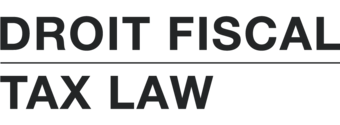
Photo by Alesia Kozik
There’s a lot of interest for cryptocurrencies. Bitcoin (BTC) and Ethereum (ETH) are the two most popular cryptocurrencies, but there are many more making their way up and gaining traction. Trading cryptocurrencies can be very rewarding if you entered the market early or if you purchased a cryptocurrency before a big rally. However, you must be aware that gains made trading cryptocurrencies are taxable. Better become familiar with the rules now instead of being caught not reporting, because it can get expensive.
The CRA Has a Dedicated Cryptocurrency Unit
The CRA is targeting cryptocurrency traders. In 2018, the CRA set up a dedicated cryptocurrency unit to conduct audits focused on uncovering tax evasion related to cryptocurrencies. This unit was established as part of the CRA’s broader “Underground Economy Strategy”.[1] The investigations conducted by the CRA go beyond Canada’s borders and include criminal investigations related to offshore tax evasion. In this regard, the CRA is cooperating with the tax administrations of other countries.
The CRA Can Go Many Years Back
In the fall of 2020, the CRA filed an application with the Federal Court in order to compel Coinsquare to hand over information about all its clients since the beginning of 2013. This resembles what they did a few years earlier when they sent a similar request to PayPal. If you traded in cryptocurrencies and did not report your gains, you are at risk of being reassessed. Any such reassessments would probably involve, in addition to the taxes that you owe, significant amounts of penalties and interest. Once the CRA has found that you did not report a gain and can show that you were negligent in failing to report the gain, they can go as far back as they want to capture all the gains they suspect were not reported.
One way to avoid penalties and reduce the amount of interest payable is to submit a voluntary disclosures application (“VDP application”). A VDP application must be submitted before any enforcement action has taken place, otherwise, it will be too late.
The Taxation of Cryptocurrency-Related Activities
For Canadian tax purposes, a cryptocurrency is not legal tender. Instead, it is a “digital representation of value”, which the CRA explains as a “digital asset […] that works as a medium of exchange for goods and services between parties who agree to use it.”
As a commodity, cryptocurrency can be taxed either as income or as a capital gain, depending on the circumstances. The capital gain treatment is more favourable because only 50% of the gain is taxable (i.e. the “taxable capital gain”), unless there’s a loss, in which case it may be preferable to have a business loss.
Generally, cryptocurrency becomes subject to taxation when there is a “disposition”, even if you do not receive actual money. The simplest example is when you “trade” a cryptocurrency for another one. You have to pay tax on the gain that you made when you disposed of the cryptocurrency you held in order to acquire the new cryptocurrency. It may feel like a “notional” gain, but it is nonetheless a gain for tax purposes.
The CRA gives the following examples of transactions triggering tax:
- selling or gifting a cryptocurrency to someone;
- trading or exchanging cryptocurrency, including disposing of one cryptocurrency to get another cryptocurrency;
- converting cryptocurrency to government-issued currency, such as Canadian dollars; or
- using cryptocurrency to buy goods or services.
If you have decided to mine Bitcoin, that could be considered a business or an “adventure or concern in the nature of trade”. You would need to make sure that you report your income correctly.
[1] CRA goes after client details of major Canadian cryptocurrency marketplace in battle against ‘underground economy’ | National Post, November 6, 2020 (by Christopher Nardi)
